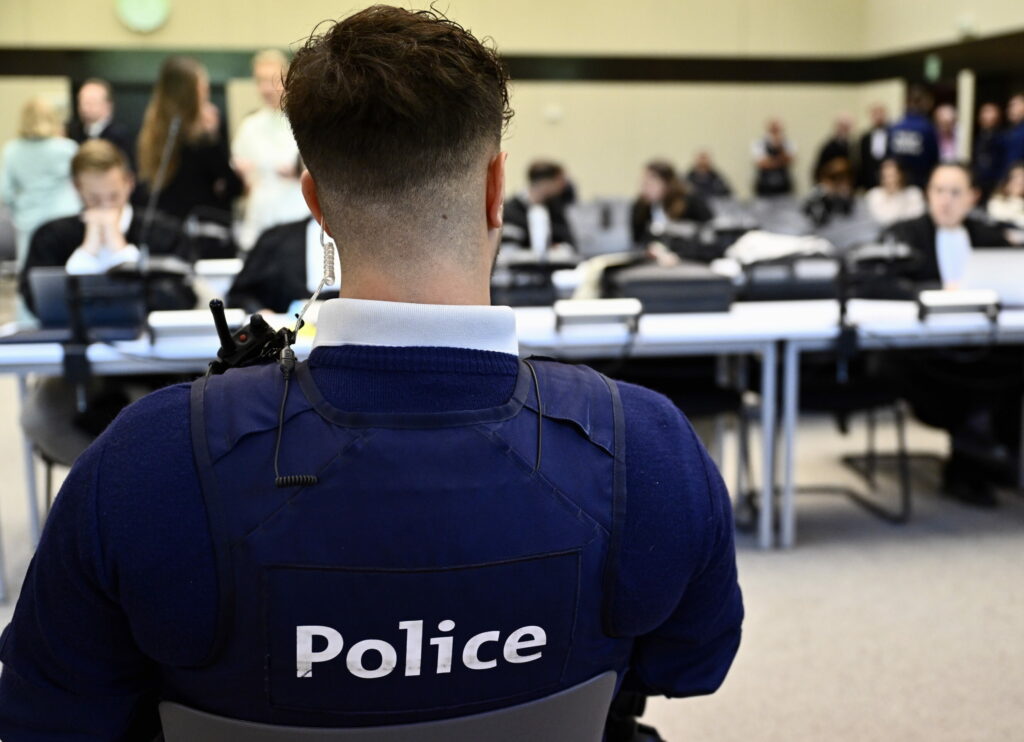More than 100 people have been convicted in what is Belgium's biggest drug trial. Tuesday marks the culmination of the Sky ECC file, in which drug operations in Belgium and other European countries were exposed by cracking encrypted messages.
This major day in court is the result of authorities cracking billions of messages on the criminal cryptophone networks Sky ECC and Encrochat. For two years detectives read the conversations, gaining insight into criminal networks for the first time. Since then, more than 1,000 people from different gangs have been convicted.
129 defendants (124 people, four companies and one anonymous party), including Belgians, Albanians, Colombians, Algerians and French nationals, were part of several drug gangs that together formed one major criminal network overseeing cocaine and cannabis smuggling and trafficking. On Tuesday they received their conviction in the largest drug trial in Belgian history.
Up to 17 years in prison
More than 100 defendants were convicted. Those that the prosecution identified as ringleaders received heavy sentences ranging from seven to 17 years.
For example, 57-year-old Algerian Abdelwahab G – a ringleader on trial for importing drugs from South America and for managing the logistics of the large drug network – was sentenced to 17 years.
The prosecution had requested 20 years, while his defence asked for a maximum of 10 to 15 years, arguing that he was only an "intermediary". The court also confiscated property belonging to him with a value of €15 million, Belga News Agency reported.

Lawyers pictured at the judgment session. Credit: Belga/ Eric Lalmand
Another of the leaders, 51-year-old Albanian Eridan M.G., was sentenced to 14 years in jail (one year less than the term demanded by the Federal Prosecutor's Office). €20 million of his assets were taken. His lawyer asked the judge to be lenient as he had cooperated with justice.
A third key figure, Bilal I., received 15 years in prison and had €3 million of assets confiscated. The court said heavy sentences were justified as the gang's actions put various parts of society at risk. For instance, they set up companies and bought property. "By working its way into all those parts of society, it tried to destabilise the rule of law."
One lawyer for the defence told VRT NWS he will likely advise his clients to appeal. He believes the court wanted to set an example with the major trial but questioned whether it will solve drug trafficking in the country. The lawyer also disputed how the evidence was gathered, noting that it was mostly extracted from cracked messages and arguing that it is therefore compromised.
Related News
- Trial of 24 suspected Antwerp Port drug traffickers begins on Monday
- Prosecution requests 20-year prison term for one of Belgium's biggest drug lords
Another lawyer expressed concern that the nature of the case makes it more complicated for the defendants to be convicted on an individual basis, though she did believe the court had analysed each defendant's role separately.
Most of those who were convicted were lower-ranking gang members. They received sentences ranging from 14 months to 15 years. A former police officer, who provided the gang members with sensitive information from police databases, was also sentenced to five years in prison, of which part was suspended.
Nine defendants were acquitted, including one who was mistaken for another suspected perpetrator because their names were very similar.

